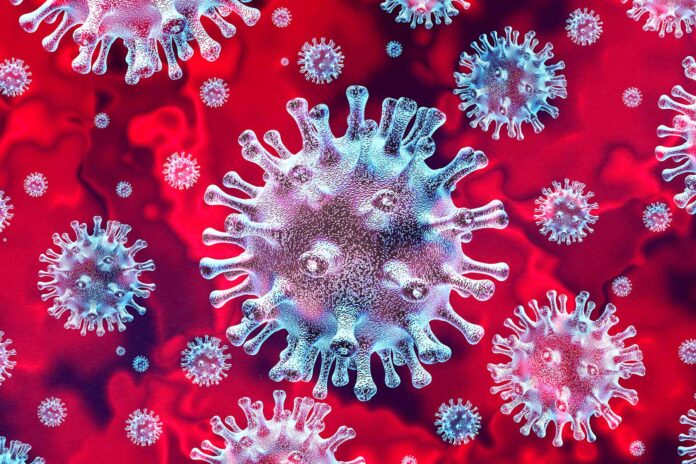South Korea’s new coronavirus infections fell below 30 on Monday as imported cases slowed, but church-traced infections continued to strain the country’s anti-virus fight.
The country identified an additional 28 virus cases, including 17 local infections, raising the total caseload to 14,626, according to the Korea Centers for Disease Control and Prevention (KCDC).
It marked a slight drop from the 36 new virus cases, including 30 local infections, the previous day.
Imported cases, which fell to a single digit after increasing by double-digit numbers for 43 consecutive days, rebounded to 11.
Of the locally transmitted cases, 11 were reported in the densely populated capital city.
The surrounding Gyeonggi Province also identified five new cases.
Domestic cases fell to as low as just three on Aug. 3, but sporadic cluster infections, most, tied to churches, have led to yet another uptick in the total number of cases.
The Namedaemun Market in central Seoul reported seven cases, but they were traced to cluster infections tied to a church in Goyang. Accordingly, the total number of related infections shot up to 31 as of Monday.
Another church from Goyang added one more virus case to a total of 21 cases. A church from Gimpo reported six new patients as well, raising the total to eight.
“The new cluster infections came as the patients did not wear protective masks properly and did not keep safe distances while dining together,’’ KCDC Director Jeong Eun-kyeong said.
Since reporting its first patient on Jan. 20, South Korea has never adopted a full lock down but opted to prevent the spread of the virus through enhanced social distancing guidelines.
The measures included adopting a quick response (QR) code-based entry authentication system to quickly track the visitors at crowded establishments, such as bars, clubs, and churches.
South Korea had banned church members from having gatherings other than regular worship services amid the soaring number of related patients, but it decided to lift the regulation on July 24.
On Sunday, health authorities hinted they were considering readopting the scheme should the number of infections from churches not plateau.
“We are concerned that there has been an increase in the number of infections at local churches, with the virus also spreading to day care centers, door-to-door sales businesses and large-sized marketplaces” Yoon Tae-ho, a senior health official, also said in a briefing.
But over the past two weeks, the average number of new domestic infections fell to 12.1 cases, down from 19.9 cases two weeks earlier, according to health authorities.
Over the period, the average number of imported cases fell to 21.4 from the previous 31.4, they added.
Of the 11 imported cases reported on Monday, six were screened at quarantine checkpoints.
The Philippines and Bangladesh accounted for two cases each. The United States took up three of the newly added imported cases.
Among the accumulated 2,561 imported cases, South Korean nationals were responsible for 65.8 per cent.
The country recently suffered a sharp increase in the number of such imported cases due to South Korean workers returning home from Iraq, along with sailors from Russian ships docked at its port.
Amid the rising number of COVID-19 cases from China’s Xinjiang region and Vietnam’s Danang, health authorities decided to reimpose a two-week isolation for business people returning home from such areas.
South Korea said it would gradually increase the number of spectators at sports events, allowing baseball stadiums to be at 30 per cent capacity starting Tuesday, up from the previous 10 per cent.
The country has not required the mandatory quarantine for South Korean businessmen returning home from China, Vietnam and Cambodia since July 29.
Health authorities said that they had identified three new strains of COVID-19 from imported cases: two from Pakistan and one from Uzbekistan.
South Korea plans to carry out additional investigation on the possible mutation of the so-called spike protein through cooperation with the World Health Organisation.
Spike protein is known to help COVID-19 penetrates into a living human cell.
“The latest findings will not affect the existing polymerase chain reaction tests, but we find it necessary to find out whether they have a different degree of infectivity” Jeong said.
The country reported no new virus deaths, keeping the number of fatalities at 305, according to the KCDC. The fatality rate reached 2.09 per cent.
The number of patients fully cured of the virus reached 13,658, up 16 from the previous day, with more than 93 per cent of the patients here having recovered.
South Korea has carried out 1,628,303 COVID-19 tests since Jan.3.
New Daily Virus Cases Fall Below 30 as Church-Linked Infections Again Loom Larger
- Advertisement -
- Advertisement -
- Advertisement -
- Advertisement -
- Advertisement -

